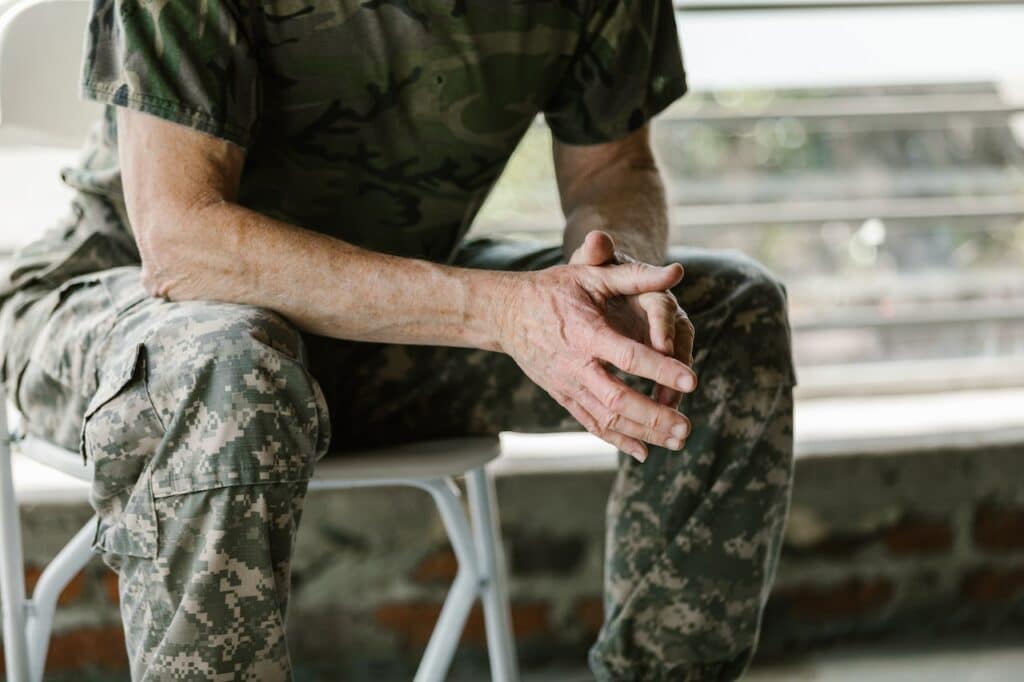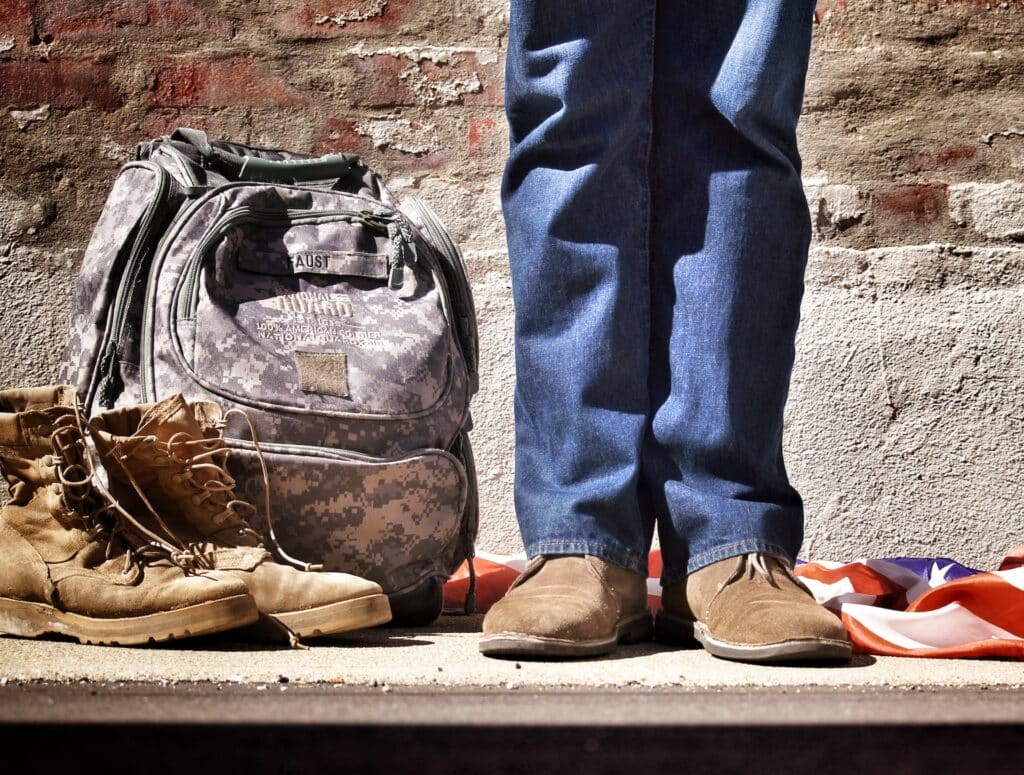Those who resided or were stationed at Camp Lejeune between 1953 and 1987 may be eligible to file a Camp Lejeune lawsuit due their exposure to Camp Lejeune water contamination. This contaminated water led to several health issues, including cancer.
Camp Lejeune Water Contamination History
In 1982, toxic chemicals were discovered in the water systems of Camp Lejeune. The affected water systems included Holcomb Boulevard, Tarawa Terrace, and Hadnot Point. These water treatment plants were responsible for the area’s drinking water since the 1950s.
It’s estimated that the Camp Lejeune water had been contaminated for approximately 30 years, potentially affecting millions and leading to several serious health concerns. Most notably, these toxic substances can cause cancer in humans.
While many chemicals were detected in the Camp Lejeune water supply, 4 primary toxic chemicals posed significant threats to human health:
- Perchloroethylene (PCE) – this chemical is used for dry cleaning and degreasing metals.
- Trichloroethylene (TCE) – an industrial degreasing solvent.
- Vinyl chloride – a byproduct resulting from the degradation of PCE and TCE over time.
- Benzene – instrumental in producing resins, plastics, nylon, and other synthetic fibers.
By 1985, the contaminated water sources were shut down. However, many groups, including Marine veterans, Navy staff, civilian employees, and their family members, were exposed to the contaminated water. As a consequence, the people in these groups may have developed severe medical conditions, including cancer, neurological issues, and other illnesses.
Furthermore, pregnant women who came in contact with the toxic water faced miscarriages, and many gave birth to infants with birth defects.
What are Camp Lejeune Lawsuits?
Since 1942, Camp Lejeune has been home to millions of military personnel, including soldiers and civilians. Those who lived or were stationed at the Marine Corp’s Camp Lejeune in North Carolina between 1953 and 1987 are filing Camp Lejeune lawsuits against the U.S. government for compensation after they were diagnosed with severe health problems, including cancer.
These medical issues are linked to exposure to the Camp Lejeune water contamination.
The Camp Lejeune Justice Act empowers those who were exposed to the contaminated water at the military base to seek compensation through a Camp Lejeune lawsuit.

Camp Lejeune Water Contamination Symptoms
Camp Lejeune water contamination symptoms are different for every person. It’s influenced by factors like the timing, duration, and method of exposure. For some, symptoms could remain dormant for years.
The nature of the symptoms depends on the diseases that resulted from the contamination. For instance, those who contracted bladder cancer due to drinking the toxic water would exhibit bladder cancer symptoms, including challenges in urination or pain during the process.
During the exposure period, some people may have experienced headaches, nausea, skin irritation, fatigue, confusion, or vomiting.
Camp Lejeune Lawsuit Injuries
In the wake of the Camp Lejeune water contamination, lawsuits have identified a wide range of injuries, spanning from cancer to birth defects. The Agency for Toxic Substances and Disease Registry performed a comprehensive study that compared those who consumed or bathed in Camp Lejeune’s contaminated water to other groups who were exposed to the same toxic chemicals to establish a connection.
Given the profound level of water contamination, those who worked or lived at the base for a minimum duration of one month between August 1953 and December 1987, could encounter a variety of severe health complications. These conditions have become crucial in Camp Lejeune lawsuits seeking compensation. Those exposed to the toxic water in utero are also eligible to file claims.
Camp Lejeune lawsuit cancers include:
- Acute myeloid leukemia
- Bladder cancer
- Brain cancer
- Breast cancer
- Central nervous system cancer
- Cervical cancer
- Esophageal cancer
- Hodgkin lymphoma
- Kidney cancer
- Leukemia
- Liver cancer
- Lung cancer
- Myelodysplastic syndrome
- Multiple myeloma
- Non-Hodgkin lymphoma
- Ovarian cancer
- Prostate cancer
- Rectal cancer
Additional Camp Lejeune lawsuit health conditions include:
- Cardiac defect
- Epilepsy
- Fatty liver disease (hepatic steatosis)
- Female Infertility
- Kidney damage
- Immune disorders
- Nerve damage
- Miscarriage
- Myelodysplastic syndromes (inclusive of aplastic anemia)
- Neurobehavioral impacts
- Parkinson’s disease
- Renal toxicity/disease
- Scleroderma
This list may change as more information is studied and published.
Am I Eligible to File a Camp Lejeune Lawsuit?
People who lived in or were stationed at Camp Lejeune for at least one month between Aug. 1, 1953 and Dec. 31, 1987 and were diagnosed with any of the previously listed diseases might be eligible to file a Camp Lejeune lawsuit. This includes reservists, veterans, guardsmen, family members, and civilian workers.
Legal experts are also taking on cases from those who were exposed while their mother was working or living on base during the water contamination period. Such in utero exposures, along with children exposed directly, face an elevated risk of health complications.
As stipulated by the Camp Lejeune Justice Act, Camp Lejeune victims should first file a Federal Tort Claims Act claim with the Department of the Navy. If your claim is rejected or if there’s no response for six months, you can proceed with a Camp Lejeune lawsuit in North Carolina. A knowledgeable Camp Lejeune lawyer can easily guide you through the legal process.
For instance, Andrea Weiner pursued a lawsuit in North Carolina against the United States in August 2022 after being diagnosed with aplastic anemia, a condition attributed to her exposure to the Camp Lejeune water contamination. She had previously submitted a claim with JAG earlier that year, which was denied.
Camp Lejeune Settlements
Experts estimate that the base settlement for Camp Lejeune could be as much as $10 million. Projections from the Congressional Budget Office indicate government settlement expenses could surpass $163 billion within a decade. As of today, no public declarations have been made regarding the settlement figures related to the Camp Lejeune water contamination lawsuits.
Absent any bellwether trial outcomes, predicting an average Camp Lejeune settlement sum remains challenging. This figure could fluctuate based on the nature and severity of reported injuries.
According to some legal experts, veterans who secure approval from the VA for a Camp Lejeune disability claim with a 100% rating could receive an average of $3,000. It’s important to note, however, that VA disability compensation is based on the disability score, and is separate from any Camp Lejeune lawsuit payouts. Veterans whose claims have been rejected can consult with an accredited veterans service officer or talk to a VA-certified attorney for guidance in appealing their case.

Camp Lejeune Lawsuit Updates
As of July 2023, approximately 1,067 Camp Lejeune lawsuits are underway in the Eastern District of North Carolina. While these Camp Lejeune lawsuits are in the beginning phases, new claims are steadily emerging.
Here are some important updates and significant events as it relates to this personal injury litigation:
- August 2022: The Honoring Our PACT Act, which included the Camp Lejeune Justice Act of 2022, was signed into law by President Joe Biden. The Camp Lejeune Justice Act empowers Camp Lejeune claimants to file lawsuits seeking compensation for water contamination injuries.
- August 2022: Andrea Weiner was among the first to file a Camp Lejeune lawsuit in North Carolina.
- January 2023: Those who filed claims with JAG in August 2022 and had not received feedback became qualified to initiate a lawsuit in North Carolina under the Camp Lejeune Justice Act.
- February 2023: The Eastern District of North Carolina has more than 100 pending Camp Lejeune lawsuits.
- February 2023: An estimated 20,000 Camp Lejeune claims were lodged via JAG.
- March 2023: Individuals who initiated claims in August 2022 through JAG, the Judge Advocate General’s Corp., became eligible to pursue Camp Lejeune lawsuits in North Carolina. This spurred a surge in North Carolina claims. Critics have pointed out that the Marine Corp and Navy have declined accountability, and have not acted on more than 20,000 JAG claims.
- July 2023: In the Eastern District of North Carolina, judges named lead representatives to manage the ongoing Camp Lejeune claim cases. Among them, Weitz & Luxenberg’s Robin Greenwald was selected as co-lead counsel.
The Camp Lejeune Justice Act of 2022 was part of the larger Honoring Our PACT Act. It was ratified by both the House and Senate on August 2, 2022. It is designed to “provide for recovery by individuals who were stationed, lived, or worked at Camp Lejeune, for certain actions of omissions by the United States.”
The Honoring Our PACT Act of 2022 covers expenses related to veteran exposure to toxic water and other harmful substances during their military tenure, including health care, presumption of service-connection, research, resources, and more.
VA Benefits
Veterans have the right to file a Camp Lejeune lawsuit and simultaneously pursue VA benefits.
The Department of Veterans Affairs has clarified that the act of filing a lawsuit will not impact the decision to allocate health care or monetary benefits. Furthermore, it doesn’t change the compensation amount granted by the VA. It is highly recommended that veterans consult with an accredited VA service officer or Camp Lejeune lawyer.
Veterans stationed at Camp Lejeune or MCAS New River, as well as any family member who lived on the base for a combined minimum of 30 days between August 1953 and December 1987, qualify for benefits. Nevertheless, these veterans must have an honorable discharge record.
Specific ailments, deemed as presumptive illnesses, that can lead to VA disability benefits include:
- Adult leukemia
- Aplastic anemia and other myelodysplastic syndromes
- Bladder cancer
- Kidney cancer
- Liver cancer
- Multiple myeloma
- Non-Hodgkin lymphoma
- Parkinson’s disease
To qualify for these disability benefits, a veteran must submit a claim and present medical documentation verifying that they were diagnosed with one or more of the previously mentioned conditions.
The VA also provides health coverage for certain presumptive illnesses for both veterans and their family members. These illnesses include:
- Bladder cancer
- Breast cancer
- Esophageal cancer
- Female infertility
- Hepatic steatosis
- Kidney cancer
- Leukemia
- Lung cancer
- Miscarriage
- Multiple myeloma
- Myelodysplastic syndromes
- Neurobehavioral effects
- Non-Hodgkin lymphoma
- Renal toxicity
- Scleroderma
For the conditions listed above, the VA will reimburse the expenses incurred by veterans and their families. Family members, similar to veterans, need to file a claim in order to qualify for compensation. The claim should be accompanied by medical records and evidence of living at either Camp Lejeune or MCAS New River for the specified duration.
Additionally, claimants should present documents verifying health-related expenses tied to any of the mentioned health conditions. While not obligatory, the claimant’s primary physician can complete the VA Form 10-10068b to assist in assessing their eligibility.
Consult with a Camp Lejeune Attorney for Help
When looking for a Camp Lejeune attorney, it’s highly recommended that you work with a law firm that has experience in toxic torts and environmental law. Attorneys with experience in chemical leaks, subterranean water pollution, and comparable large-scale environmental issues have the expertise that is required to advocate for you.
In your search for the right Camp Lejeune litigation attorney, you may need to consult with multiple law firms. Once you retain a lawyer, they will help you navigate the lawsuit initiation process. This typically starts with a claim submission to JAG, followed by filing a lawsuit in North Carolina. The lawyer will then gather evidence to corroborate your case, followed by a settlement negotiation or, if necessary, court argument.
References
- https://clnr.hqi.usmc.mil/
- https://clnr.hqi.usmc.mil/clwater/pages/articles/pr_6-13-07.aspx
- https://gregmurphy.house.gov/media/press-releases/murphy-applauds-passage-camp-lejeune-justice-act
- https://nced.uscourts.gov/pdfs/FiledOrder-07-19-2023.pdf
- https://rollcall.com/2023/03/23/camp-lejeune-health-claims-are-mired-despite-law-allowing-suits/
- https://thehill.com/policy/equilibrium-sustainability/596723-camp-lejeune-toxic-water-victims-eye-justice-as-pivotal/
- https://www.aboutlawsuits.com/wp-content/uploads/2022-08-11-Weiner-Complaint.pdf
- https://www.atsdr.cdc.gov/sites/lejeune/activities.html
- https://www.atsdr.cdc.gov/sites/lejeune/background.html
- https://www.atsdr.cdc.gov/sites/lejeune/faq_chemicals.html
- https://www.atsdr.cdc.gov/sites/lejeune/index.html
- https://www.atsdr.cdc.gov/sites/lejeune/tce_pce.html
- https://www.federalregister.gov/documents/2017/01/13/2017-00499/diseases-associated-with-exposure-to-contaminants-in-the-water-supply-at-camp-lejeune
- https://www.ncbi.nlm.nih.gov/books/NBK215286/
- https://www.publichealth.va.gov/exposures/camp-lejeune/
- https://www.reuters.com/legal/litigation/more-than-100-lawsuits-filed-us-court-over-camp-lejeune-water-after-waiting-2023-02-14/
- https://www.va.gov/disability/eligibility/hazardous-materials-exposure/camp-lejeune-water-contamination/
- https://www.va.gov/files/2022-12/Camp%20Lejeune%20FAQ%20V12.6.22%201030hrs.pdf
- https://www.whitehouse.gov/briefing-room/statements-releases/2022/08/10/fact-sheet-president-biden-signs-the-pact-act-and-delivers-on-his-promise-to-americas-veterans/
